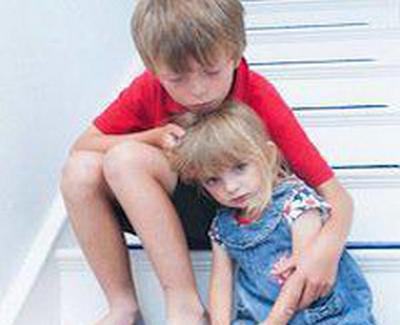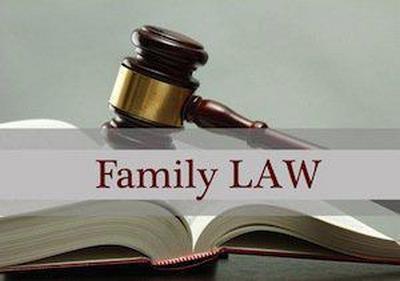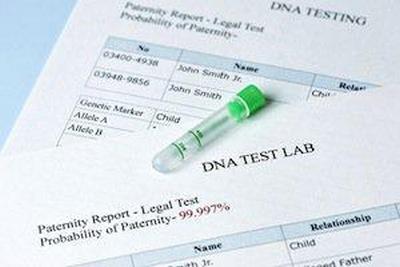Free Initial Consultations
 630-580-6373
630-580-6373With offices in Naperville, Joliet, Wheaton, Plainfield & Chicago
 In Illinois, a guardian is appointed for a variety of reasons and has the same responsibilities to a child as a child’s natural parent. Guardianship arises in certain scenarios, such as when: a child’s biological parents cannot care for the child; a child’s parents died in an unfortunate accident; a minor child is disabled and is unable to provide for his or her own well being; or when elderly persons can no longer take care of themselves.
In Illinois, a guardian is appointed for a variety of reasons and has the same responsibilities to a child as a child’s natural parent. Guardianship arises in certain scenarios, such as when: a child’s biological parents cannot care for the child; a child’s parents died in an unfortunate accident; a minor child is disabled and is unable to provide for his or her own well being; or when elderly persons can no longer take care of themselves.
Under Illinois law, there are four types of guardianships available. These guardianships are: permanent legal guardian; guardian ad litem; standby guardian; and short-term guardian.
A permanent legal guardian assumes the obligations of the biological parents and is responsible for the child’s necessities, such as food, clothing, shelter, education and upbringing;
A guardian ad litem is someone appointed by the court to investigate the facts surrounding the case involving the child, who then makes a recommendation to the court, which the court usually accepts;
 While United States law is supreme within our borders, this does not preclude other systems of law from having an effect on how people raise their children and where those children may want to live in the event of divorce or the loss of a parent (or both). Legal systems such as those adopted by religions or ethnic groups still play an extremely important role in many lives, and in some cases, it is possible to integrate certain provisions into a determination of child custody.
While United States law is supreme within our borders, this does not preclude other systems of law from having an effect on how people raise their children and where those children may want to live in the event of divorce or the loss of a parent (or both). Legal systems such as those adopted by religions or ethnic groups still play an extremely important role in many lives, and in some cases, it is possible to integrate certain provisions into a determination of child custody.
Islamic Law and Child Custody
Islamic law is heavily paternalistic, at least in regards to family law matters, and the preferable custody arrangement in many Muslim divorces is to have the children stay with their mother until they reach the age of “custodial transfer” (which varies between families, but is generally around the Islamic age of maturity—teenage years) and then return to their father’s family.
 When the Illinois Department of Children and Family Services knocks on your door, you should take the process seriously, whether or not you believe they have a right to take action against you or not.
When the Illinois Department of Children and Family Services knocks on your door, you should take the process seriously, whether or not you believe they have a right to take action against you or not.
In Illinois, DCFS is responsible for the protection of children across the state. Therefore, they have the authority to thoroughly investigate anyone suspected of abusing or neglecting children. Child abuse, as broadly defined by Illinois law, is the mistreatment of a child under the age of majority, which is 18, by a parent, intimate partner, immediate relative, roommate (even if unrelated), caretakers (babysitters, daycare workers), educators, coaches, and even youth volunteers.
Understanding Child Abuse or Neglect
 Currently, the Illinois Marriage and Dissolution of Marriage Act (“IMDMA”) determines the factors the court considers when deciding the best interests of the child during child custody disputes. As the law stands today, the court issues physical and/or legal custody to a single parent or both parents. These categories are commonly referred to as joint or sole custody. Essentially, if the parents do not cooperate, one parent will be granted custody and the other will be granted visitation, creating a winner/loser scenario.
Currently, the Illinois Marriage and Dissolution of Marriage Act (“IMDMA”) determines the factors the court considers when deciding the best interests of the child during child custody disputes. As the law stands today, the court issues physical and/or legal custody to a single parent or both parents. These categories are commonly referred to as joint or sole custody. Essentially, if the parents do not cooperate, one parent will be granted custody and the other will be granted visitation, creating a winner/loser scenario.
The IMDMA directs the court to consider certain factors when evaluating the best interests of the child at issue in the child custody proceedings. These factors include, but are not limited to, the following:
Wishes of the child;
 When the court determines that an adult is unable to care for himself/herself, or a child’s parents are unable to care for the child, the court will appoint a guardian. The court can appoint a guardian to have custody of the child or to manage the child’s property, or both.
When the court determines that an adult is unable to care for himself/herself, or a child’s parents are unable to care for the child, the court will appoint a guardian. The court can appoint a guardian to have custody of the child or to manage the child’s property, or both.
If the court appoints a custodial guardian, the guardian has the right to:
Custody of the minor child;
Enroll the minor child in school;
Consent to medical treatment for the minor child; and
Apply for public benefits on behalf of the child.
Accompanying these rights come certain responsibilities. The guardian is responsible for:
Providing the minor child with necessities (food, clothing and shelter);
 The adoption law in Illinois focuses on facilitating new family relationships. When parents to decide to adopt a child, it creates a legal parent-child relationship, just as if the child was their biological offspring. The same outcome applies when a parent, or parents, adopt an adult. Commonly, adult adoptions formalize relationships that have endured for a long period of time. Many states across the United States, including Illinois, permit adult adoption, where two adults legally enter into a parent-child relationship.
The adoption law in Illinois focuses on facilitating new family relationships. When parents to decide to adopt a child, it creates a legal parent-child relationship, just as if the child was their biological offspring. The same outcome applies when a parent, or parents, adopt an adult. Commonly, adult adoptions formalize relationships that have endured for a long period of time. Many states across the United States, including Illinois, permit adult adoption, where two adults legally enter into a parent-child relationship.
There are benefits to adult adoption. Adult adoption gives the adopted adult the inheritance right from the adopting parent(s), just as if the adult was the biological child of the adoptive parent(s). Likewise, it permits the adopted adult to make important medical decisions, should the parent become disabled or incapacitated. Often, adult adoptions occur in pre-existing relationships, such as the situation of a stepparent and stepchild, which is performed to ensure that the stepchild has inheritance rights.
 Avoiding Marriage Issues Related to Money
Avoiding Marriage Issues Related to Money
Relationships between couples flourish when communication is open and clear. Therefore, having a conversation about your financial future prior to marriage allows both parties to set realistic and reasonable expectations. Moreover, open communication about financial expectations lays the foundation for creating a budget and planning for the future.
However, sometimes people have different expectations regarding lifestyle and the spending of money.
Instead of waiting to see your savings decrease and your debts increase, it is best to attack the issue head on so that both you and your spouse-to-be are not saddled with debt later in life. If you can discuss income, debts, expenses and assets, and reach an agreement now, it can help avoid marriage issues later.
 The decision to adopt a child comes with many emotions—it is an exciting step for your family but it is also challenging. If you are looking to increase the size of your family through adoption, there may be issues that make the seemingly easy process very complicated. However, it is important to note, several avenues are available to you when making the decision to adopt a child.
The decision to adopt a child comes with many emotions—it is an exciting step for your family but it is also challenging. If you are looking to increase the size of your family through adoption, there may be issues that make the seemingly easy process very complicated. However, it is important to note, several avenues are available to you when making the decision to adopt a child.
Generally, when you adopt a child, you become the child’s legal parent and you will be given all parental rights and responsibilities as if the child was born to you. Likewise, the child will obtain all rights of a child, such as inheritance rights from both parents. In order for the adoption to be legal, the birth parents must consent to the adoption or the court must legally terminate the parental rights of the birth parents before the child can be legally adopted.
Different Avenues of Adoptions
 Paternity refers to the relationship a child shares with his or her father. The process of establishing paternity in Illinois is fairly straight forward. However, sometimes, it can be more difficult than you can imagine. Establishing paternity is very important because it will impact decisions related to child custody, visitation and child support.
Paternity refers to the relationship a child shares with his or her father. The process of establishing paternity in Illinois is fairly straight forward. However, sometimes, it can be more difficult than you can imagine. Establishing paternity is very important because it will impact decisions related to child custody, visitation and child support.
Under the Illinois Parentage Act, there are only a few situations in which the legal father of a child is determined. If the parents were married when the child was born or conceived during the marriage, the husband will be presumed to be the father of the child. Also, if the husband married the mother after the child was born and signed the child’s birth certificate after birth, then the individual who signed the birth certificate will be considered the legal father. Likewise, if the individual signed a Voluntary Acknowledgement of Paternity (“VAP”) form, then this individual will be considered the legal father. Finally, if some or none of the above applies, the Department of Health and Family Services (“HFS”) or an Illinois court can issue an order establishing paternity.
 Deciding to get divorced is a tough decision for any spouse. After all, it will directly affect the happiness and stability in your life. Once you clear the hurdle and decide to get divorced, tougher questions will arise, especially if you have children; your decisions will directly affect their lives. When you and your former spouse cannot reach an agreement when it comes to raising your child or children, your only option is turning your decision over to a judge, and let him or her decide who gets legal and physical custody.
Deciding to get divorced is a tough decision for any spouse. After all, it will directly affect the happiness and stability in your life. Once you clear the hurdle and decide to get divorced, tougher questions will arise, especially if you have children; your decisions will directly affect their lives. When you and your former spouse cannot reach an agreement when it comes to raising your child or children, your only option is turning your decision over to a judge, and let him or her decide who gets legal and physical custody.
Illinois law provides guidelines, informing the court of factors to consider when determining the best interest of the child and how to award legal and physical custody. When a parent is given legal custody, he or she has the right to make decisions regarding the general welfare of the child. On the other hand, when a parent is granted physical custody, he or she has a right to have the child live with him or her.
